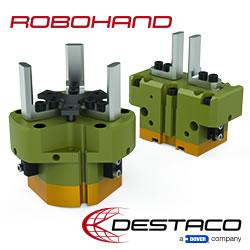Thinfilm and PST Sensors to Jointly Develop Printed Temperature Tags to Monitor Food and Other Perishable Goods
Disposable electronic sensor system to tap into existing, large and fast growing markets; improve food safety and reduce waste; enable the "Internet of Things"
OSLO--Thin Film Electronics ASA ("Thinfilm") today announced a partnership with PST Sensors (pty) Ltd (PST) to jointly develop a printed temperature sensor system that will monitor the temperature of perishable goods such as food and pharmaceuticals. These systems are a successful example of how low cost electronics can be manufactured in high volumes for a fraction of the cost compared to traditional silicon microelectronics. The printed sensor system will be able to monitor individual packages to ensure that their contents have been kept at a safe or optimal temperature. The first demonstration prototype is expected this year.
"We are definitely looking forward to working with Thinfilm on the development of this integrated system."
Thinfilm is a leading provider of roll-to-roll printed, rewritable non-volatile memory products. The company recently demonstrated the first working prototype of a printed non-volatile memory device addressed with complementary organic circuits, the organic equivalent of CMOS circuitry. Thinfilm Addressable Memory combines Thinfilm's polymer-based memory technology with PARC's transistor technology using complementary pairs of n-type and p-type transistors to construct the circuits. The addressable memory can be integrated with other printed components to create fully printed systems for interaction with everyday objects - a key part of the vision of the "Internet of Things" where virtually any item can communicate with another.
PST Sensors, a spin-out of the University of Cape Town NanoSciences Innovation Centre, is a leading developer of ambient processed printed silicon electronics with a focus on physical sensors. Recently PST has demonstrated a portfolio of prototypes including decorative large area temperature sensors and thermal imaging arrays. PST's temperature sensors are based around a core technology of a printed silicon NTC thermistor - a device whose electrical resistance decreases when it is heated. Being both printable and electronic, the sensors can be fully integrated with Thinfilm's memory and with complementary organic circuits.
"The combination of our printed addressable memory and a PST temperature sensor creates a new category of integrated system - inexpensive, intelligent and able to offer information on temperature on a per item basis - something not currently possible due to manufacturing and material cost restrictions," said Davor Sutija, CEO, Thinfilm. "These systems, as thin as a strand of hair, will let health care professionals know that a drug has been kept at the right temperature. Participants across the perishable food chain will also know that a piece of meat or carton of eggs has been correctly refrigerated. Ultimately these devices may even tell consumers how fresh their food is."
The monitoring of food will enable consumers to have more insight into the freshness of their food and potentially reduce the 1.27 billion tons of food wasted globally. A 2008 report from the U.K.-government group called WRAP, the Waste and Resources Action Programme, estimated that 20 percent of food waste is linked to date labeling confusion and lack of information on its safety or freshness. According to a recent report compiled for the United Nations FAO* this corresponds to 6.6% of all food produced, or about 85,625 tons a year.
"ThinFilm has taken another important step towards achieving the Holy Grail of printed electronics -- replacing traditional semiconductor components with fully printable systems," said Randall Sherman, Senior Analyst, New Venture Research. "The company is confidently and capably building an ecosystem through supplier relationships, creating solutions that we as an industry have been touting for years. It's impressive to see such products readied for market."
The development of new "fragile" pharmaceuticals offers significant market opportunities for a low cost electronic tag that monitors temperature. According to Pharmaceutical Commerce, 7 of the top 10 global pharma products in 2014 will require cold-chain handling. This market - which requires storage and distribution that maintains a given temperature range - is estimated to grow to $6.9 billion in 2012 according to Pharmaceutical Commerce's Biopharma Sourcebook. Typical alarm sensors for this market cost between $15 and $25, while the integrated devices developed by Thinfilm and PST will have a price of less than 1/100 of current systems.
"Our work with Thinfilm has the potential to unlock significant new market opportunities, and is an excellent example of the transformative impact that printed electronics will have on the entire supply chain," said Margit Härting, founder and CSO of PST Sensors. "We are definitely looking forward to working with Thinfilm on the development of this integrated system."
"The team behind PST has been working with the printed silicon technology over the last decade, and PST Sensors is the leading company in its field," said Christer Karlsson, CTO, Thinfilm. "Its printed silicon sensor technology is uniquely easy to manufacture and offers a low cost point."
About Thinfilm
Thin Film Electronics ASA ("Thinfilm") is a publicly listed Norwegian technology company with its head office in Oslo, Norway, and product development in Linköping, Sweden, and sales offices in San Francisco, USA, and Tokyo, Japan. Thinfilm is a pioneer in the field of Printed Electronics, and provides fully printed non-volatile, rewritable memory for applications in toys & games, logistics, sensor, and ID systems.
http://www.thinfilm.no
Featured Product

